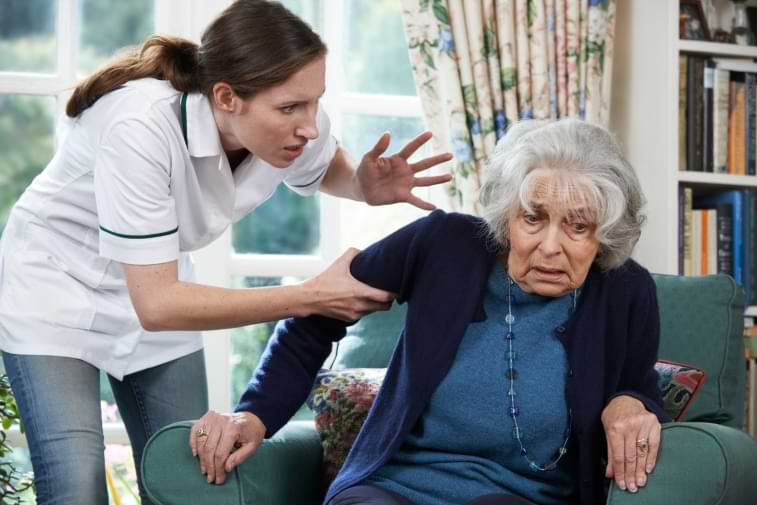Waldorf Nursing Home Abuse Lawyer
When you made the decision to put your mom or dad, or grandmother or grandfather, into either a nursing home, an assisted living facility, or a group home, you did so with the expectation that the very best quality of care would be provided to them. You thought they would be given proper food and medicine, the facility would provide a safe and clean environment, and that the professionals and staff would make professionalism and constant care their number one goal. As the Waldorf nursing home abuse lawyers at our firm know all too well, that isn’t what happened. If you need to speak to someone now, visit our Waldorf law office page or contact us for a free consultation.
You got the phone call late at night that your loved one had been injured or worse, had died suddenly and unexpectedly. You never thought this would happen. You put the health and welfare of a loved one in the hands of another—someone you trusted—and that trust was violated.
The Maryland nursing home, assisted living facility, or group home has failed to live up to the standard of care you expected. Your loved one has suffered from abuse, neglect, or medical negligence and was hurt, or worse, killed. If a facility’s failures rose to the level of malpractice, learn more about your options under medical malpractice law. If a death occurred, our firm also handles wrongful death claims.
You are angry and confused at the facility that you entrusted your loved one with. You may even be blaming yourself for making the wrong decision. Don’t blame yourself—get answers. Contact the Law Offices of Thomas E. Pyles, P.A. and hire a skilled Waldorf nursing home abuse lawyer. Learn more about Attorney Thomas E. Pyles and our team.

Three Types of Nursing Home Cases
There are three fundamental types of nursing home cases:
- Abuse
- Neglect
- Medical Malpractice
What Cases Will a Waldorf Nursing Home Abuse Lawyer Take?
Nursing home abuse encompasses a wide range of behaviors that all have one thing in common: they adversely affect the patient’s physical, emotional, or financial well-being. The most common types of nursing home abuse include:
- Physical abuse: Abuse that causes personal injury to the patient. This can include pushing, hitting, pinching, biting, burning, or cutting. It can also include medical abuse, such as sedating the patient through the unauthorized use of drugs, restraining the patient by physical means, or over- or under-medicating the patient. Because nursing home patients are already in physically weakened states, physical abuse can lead to a rapid deterioration in their health.
- Sexual abuse: Unwanted sexual contact perpetrated by force, threats, or without the victim’s consent. It often occurs in settings with patients who suffer from dementia, Alzheimer’s, or other conditions that impair their ability to understand what is happening.
- Emotional abuse: Any behavior intended to frighten or humiliate the victim, including scaring, teasing, ridiculing, shaming, or berating them. It often occurs in understaffed facilities where employees suffer high rates of work-related stress.
- Financial abuse: When staff take advantage of a patient’s finances in a way that causes financial harm, from theft of cash or valuables to identity theft or fraud.
For more specific information about behaviors that constitute nursing home abuse, please contact us.
What Are the Risk Factors for Abuse?
It’s hard to imagine how anyone could intentionally harm a vulnerable elderly individual, but, unfortunately, nursing home abuse is disturbingly common. While exact numbers are difficult to pin down, federal reviews have found that a substantial share of seniors in skilled nursing facilities experience adverse events, and many facilities report allegations of abuse or neglect. These figures may understate the problem due to underreporting.
The National Center on Elder Abuse has found that certain factors can increase a patient’s risk of becoming a victim of abuse, including:
- Low social support
- Experience of previous traumatic events
- Functional impairment or poor physical health
- Lower income and poverty
- Non-use of social services
- Being single
- Being female
- Being of younger age in the facility population
If your loved one displays any of these risk factors, take extra care to monitor for signs of nursing home abuse. If you find evidence of abuse, do not hesitate to contact our Waldorf nursing home abuse lawyer for legal assistance.
How to Help Prevent Nursing Home Abuse
The best defense starts with prevention. Although it is impossible to monitor a family member 24/7, you should remain vigilant. Know the warning signs:
- Unexplained weight loss
- Cuts, bruises, or bedsores
- Changes in mood or temperament
- Poor hygiene or unsanitary living conditions
- Unusual financial activity
Even if none of these are present, abuse can still occur. Steps that may reduce risk include:
- Research each facility and check for past citations
- Choose a home near you and visit often
- Monitor finances and account access
- Encourage social activities and outside connections
- Promote safe physical activity and mental stimulation
Contact a Waldorf Nursing Home Abuse Lawyer
Even the most vigilant families can miss abuse when it occurs. If you suspect that your loved one is suffering abuse—physical, sexual, emotional, or financial—act swiftly to stop it and protect their rights. For immediate help, reach out through our online contact form or call 301-705-5006. Learn more about our Waldorf office, our work in serious personal injury matters, and attorney Thomas E. Pyles.
